News
Just in: President Tinubu Govt burns 14bn on repentant terrorists
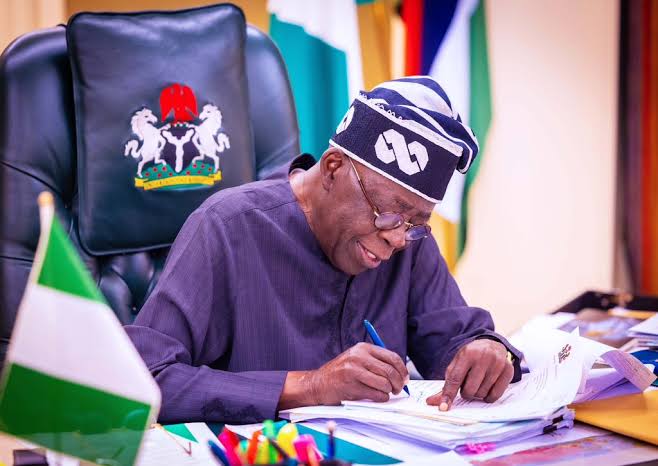
The Federal Government has spent about N1.4bn for the rehabilitation of repentant terrorists and the establishment of centres for terrorism trials in the last one year and six months.
Recall that the Federal Government established the National Counter-Terrorism Centre following former President Muhammadu Buhari’s assent to the Terrorism (Prevention and Prohibition) Bill on May 12, 2022.
In December 2022, the government announced its decision to establish two disarmament, deradicalisation, rehabilitation, and reintegration centres for repentant members of Boko Haram and other terrorist groups in the country.
The Coordinator of the National Counter Terrorism Centre, Rear Admiral Yem Musa (retd.), disclosed to the House of Representatives Committee on National Security and Intelligence that the government would spend N2.4bn on the centres as part of the NCTC’s N3.8bn capital projects for 2023.
However, checks by one of Sunday Punch correspondents using GovSpend, a civic tech platform that tracks and analyses the Federal Government’s spending, revealed that between December 2022 and May 2024, the Ministry of Justice spent a total of N1.4bn on constructing rehabilitation centres for repentant terrorists and renovating an abandoned building for terrorism case trials.
On March 27, 2023, the Federal Ministry of Justice disbursed N612m to three firms for the renovation and furnishing of abandoned structures for terrorism case trials and the construction of dormitories for the rehabilitation of repentant terrorists under Operation Safe Corridor.
The first payment of N286.7m was transferred to a firm, El-haby Concept Limited, for the renovation and furnishing of abandoned building for terrorism case trials at Giwa Barracks, as approved by the Secretary to the Government of the Federation on March 21, 2023.
The second payment of N21.5m was made to Interprise Limited as consultancy fees for designing and supervising the building of facilities for repentant terrorists at the OSC. The remaining N303.7m was released to Fosab Global Energy Service Limited as an additional 40% payment for constructing the rehabilitation centre.
In 2024, the ministry paid three firms a total of N179m for similar projects. The first payment of N11.5m was wired to Jayjaysen Integrated Links Ltd on March 22, 2024, for the supply of desktop computers and LaserJet printers/toners to facilitate terrorism case prosecutions, as approved by the SGF on December 1, 2023.
Another N16.4m was transferred to Estergel Ltd on April 8, 2024, for procuring computers and accessories for the same purpose, as approved by the SGF on December 18, 2023. Finally, N151.8m was paid to Fosab Global Energy Service Ltd on May 3, 2024, as part of payment for constructing the rehabilitation centre.
Secret trials of terrorists
Meanwhile, on December 15, the NCTC disclosed in a statement that it had secured the conviction of no fewer than 325 terrorists in its Phase 5 and Phase 6 trials at the Kainji Detention Facility.
The centre noted that the terrorists received various sentences ranging from the death penalty to life imprisonment and terms of 20 to 70 years, depending on the severity of the crimes committed by the suspects.
In the Phase 5 trial, conducted in July 2024, about 143 cases were heard, leading to 125 convictions. In Phase 6, 237 cases were heard, with 200 convictions secured at the same venue. However, the government has since remained silent on when the Phase 7 trials will commence.
When Sunday PUNCH reached out to the Office of the Attorney General of the Federation and Minister of Justice to ascertain why the trials were conducted secretly, our correspondent received no response.
Some security experts and civil society organisations expressed divergent opinions on the secretive nature of the terrorism trials.
A security expert, Lekan Jackson-Ojo, said secret trials lacked authenticity.
“When politicians, armed robbers, or the so-called Yahoo boys commit offences, the press is allowed to report on it, and the entire world knows about it. But why are we trying these enemies of humanity, enemies of God—the Satanists—in secrecy?
“For over 20 years, members of the Boko Haram terrorist group have been in Nigeria, killing thousands of people and rendering millions homeless. How many of these people have been sentenced to life imprisonment?” he queried.
Chidi Omeje, another security expert, also condemned the secret trials, saying, “Why would they conduct secret trials? Does it mean the military, for example, is trying to protect these terrorists who are also killing their personnel?”
“The terrorists have killed a lot of military officers. So, why would the military participate in any action to shield their prosecution? I think it has to do with procedural issues because they are dealing with so many arrested terrorists,” he added.
However, another security expert, Kabir Adamu, argued that the government’s decision to conduct secret trials was justified for security reasons.
He said, “It is very commendable that this administration has prioritised the trial of suspects, especially those facing terrorism-related charges and who have been in detention for a very long time, some for more than a decade. However, these trials must be conducted according to standard procedures to ensure transparency and compliance with the rule of law.”
Punch
News
Nigeria Felicitates with South Africa on 31st Freedom Day Anniversary

By Gloria Ikibah
Nigeria has congratulated South Africa on the celebration of its 31st Freedom Day anniversary, marking more than three decades since the end of apartheid rule.
This was contained in a statement issued by the Ministry of Foreign Affairs, on Sunday in Abuja, the Minister, Ambassador Yusuf Maitama Tuggar, extended warm greetings to his South African counterpart, His Excellency Ronald Lamola, Minister of International Relations and Cooperation.
Ambassador Tuggar described the day as a reminder of the historic victory of democracy over apartheid and a celebration of the resilient and unified spirit that continues to shape South Africa’s journey.
“Nigeria and South Africa share a profound bond forged through decades of solidarity in the liberation struggle. As we reflect on this milestone, we recall Nigeria’s unwavering support for the anti-apartheid movement, including diplomatic, material, and moral contributions that underscored our commitment to justice and the ethos of pan-Africanism,” the statement read.
Highlighting the strong bilateral ties between the two countries, Tuggar emphasized the shared responsibility Nigeria and South Africa have in promoting peace, security, and inclusive development across the African continent.
He noted that as Africa’s two largest economies and democracies, there is a need to strengthen collaboration in areas such as trade and investment through the African Continental Free Trade Area (AfCFTA), as well as cultural exchanges and youth empowerment.
“Therefore, on this Freedom Day, we stand with South Africa in honouring the sacrifices of heroes like Walter Sisulu, Nelson Mandela, Govan Mbeki, Thabo Mbeki and recommit to working together to realize the vision of a prosperous, peaceful, and united Africa,” he added.
News
Enugu Reps caucus backs concessioning of Enugu airport
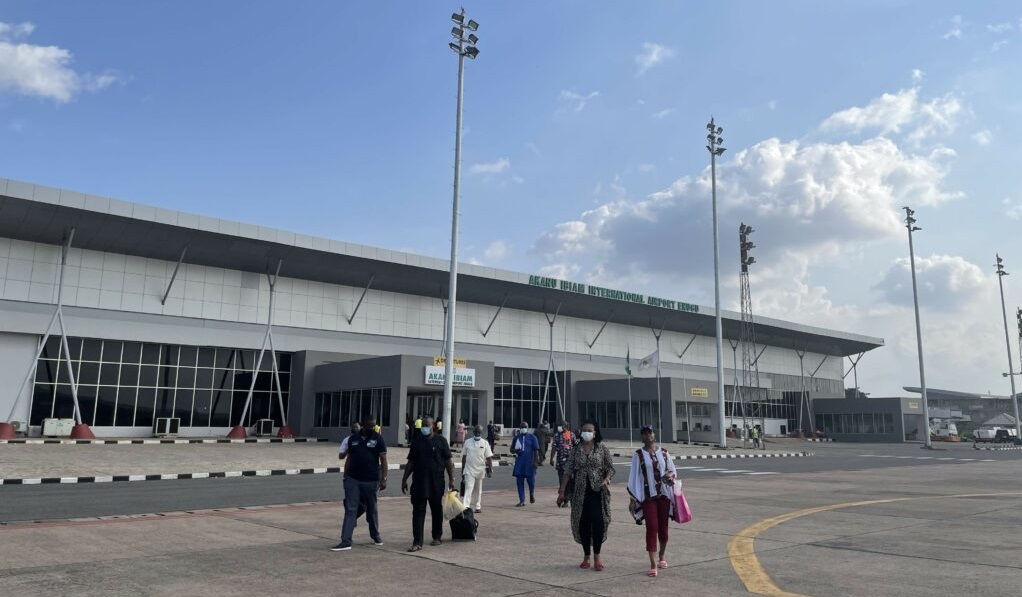
The Enugu Caucus in the House of Representatives has thrown its weight behind the Federal Government’s plan to concession the Akanu Ibiam International Airport, Enugu, describing it as a potential catalyst for the Southeast economy.
The caucus commended the Federal Government for the initiative and urged it to hasten the process to enable the people of the Southeast and the nation to benefit from it in earnest.
It also called on the people of the region to support the concession as the only way to guarantee sustainable investment to fully develop the airport into a truly international facility.
News
Vatican: Conclave to elect a new pope will start on May 7
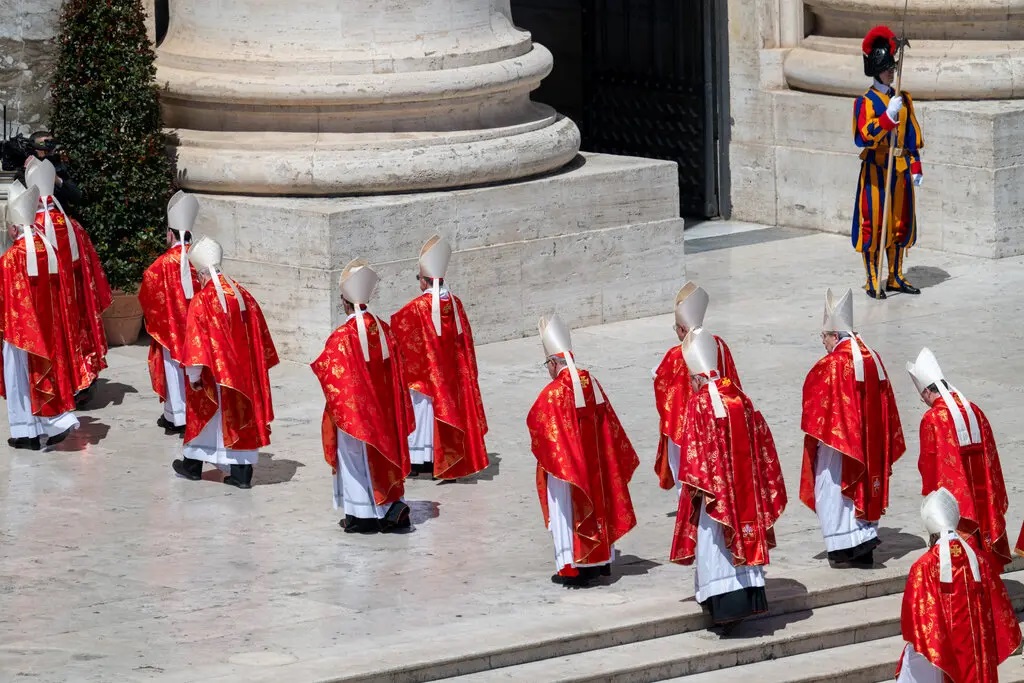
Cardinals will meet next month in a secret conclave to elect the next pope, the Vatican has said.
The closed-door meeting will start inside the Sistine Chapel on 7 May and will involve some 135 cardinals from across the world.
It follows the death of Pope Francis who died at the age of 88 on Easter Monday and whose funeral was held on Saturday.
There is no timescale as to how long it will take to elect the next pope, but the previous two conclaves, held in 2005 and 2013, lasted just two days.
Vatican spokesman Matteo Bruni said cardinals will take part in a solemn mass at St Peter’s Basilica, after which those eligible to vote will gather in the Sistine Chapel for the secretive ballot.
Once they enter the Sistine Chapel, cardinals must have no communication with the outside world until a new Pope is elected.
There is only one round of voting on the first afternoon of the conclave, but the cardinals will vote up to four times every day afterwards.
A new pope requires a two-thirds majority – and that can take time.
Each cardinal casts his vote on a simple card that says, in Latin: “I elect as Supreme Pontiff” to which they add the name of their chosen candidate.
If the conclave completes its third day without reaching a decision, the cardinals may pause for a day of prayer.
Outside the Sistine Chapel the world will be watching for the smoke from the chimney.
If the smoke is black, there will be another round of voting. White smoke signals that a new pope has been chosen.
On Saturday, politicians and royalty joined thousands of mourners as Pope Francis’ funeral was held in St Peter’s Square.
Hymns played out on giant speakers, occasionally drowned out by the sound of helicopters flying overhead, before 91-year-old Cardinal Giovanni Battista Re gave a homily on the pope’s legacy.
After a ceremony, huge crowds lined the streets of Rome to watch as the Pope’s coffin was carried in a procession to his final resting place, Santa Maria Maggiore Basilica.
Authorities said 140,000 people had lined the streets, clapping and waving as the hearse – a repurposed white popemobile – crossed the Tiber river and drove past some of Rome’s most recognisable sights: the Colosseum, the Forum and the Altare della Patria national monument on Piazza Venezia.
On Sunday images of Pope Francis’s tomb at the church were released showing a single white rose lying on the stone that bears the name he was known by during his pontificate, below a crucifix illuminated by a single spotlight.
-

 News10 hours ago
News10 hours agoJust in: Senator Natasha tenders satirical ‘apology’ to Akpabio
-

 News5 hours ago
News5 hours agoInsecurity: BUDA urges govt to quickly rescue Baruten from terrorists
-

 News7 hours ago
News7 hours agoUNUSUAL! Without invitation, Police declared me wanted — Daughter of ABC Transport owner
-
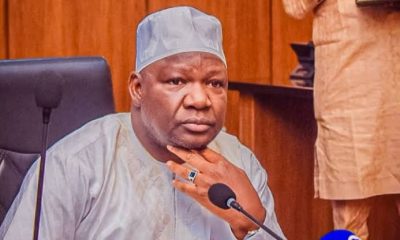
 News3 hours ago
News3 hours agoWeeks to 2nd anniversary, Niger deputy gov, plans to resign, move out personal effects
-

 News19 hours ago
News19 hours agoBenue LG chairman gives Fulanis 48hrs to leave all farmlands
-
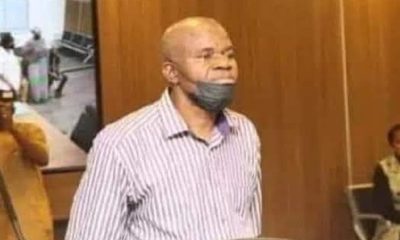
 News1 hour ago
News1 hour agoBreaking: Late gospel singer Osinachi’s husband sentenced to death by hanging
-

 News19 hours ago
News19 hours agoFive suspected kidnappers eliminated by police in Delta
-

 Metro12 hours ago
Metro12 hours ago‘My husband always makes love throughout the night until morning’ – Woman Wants Divorce


















